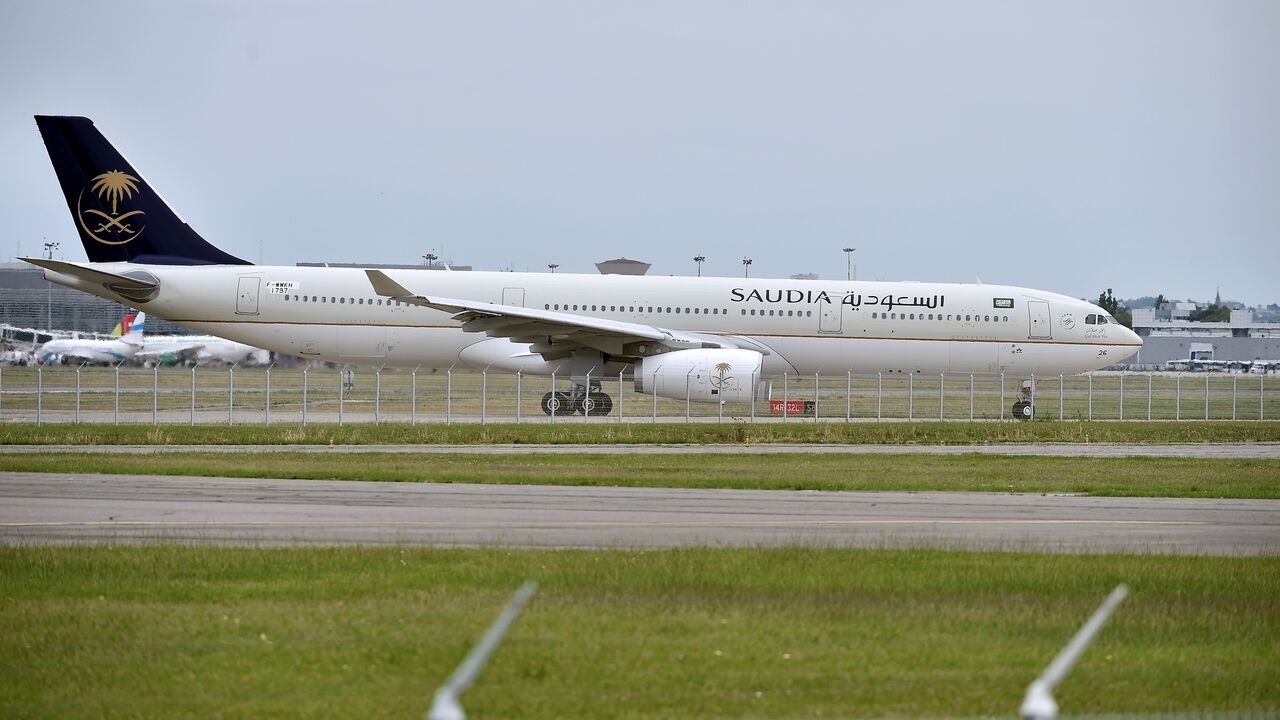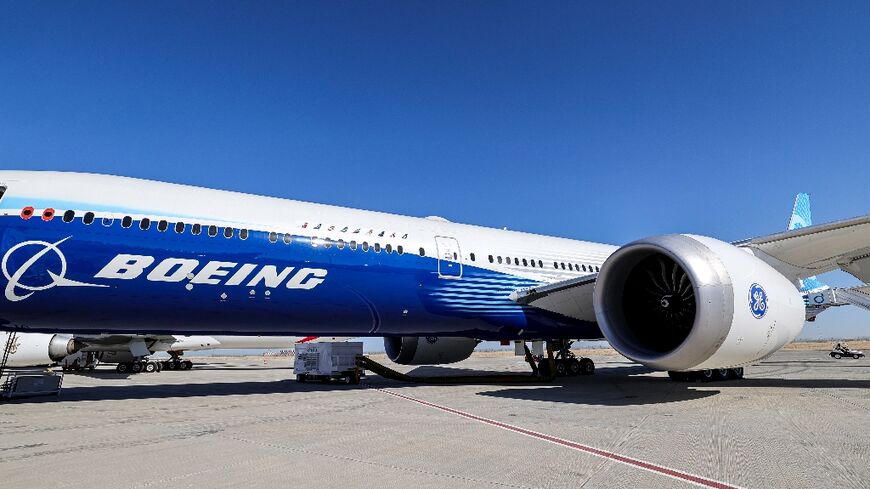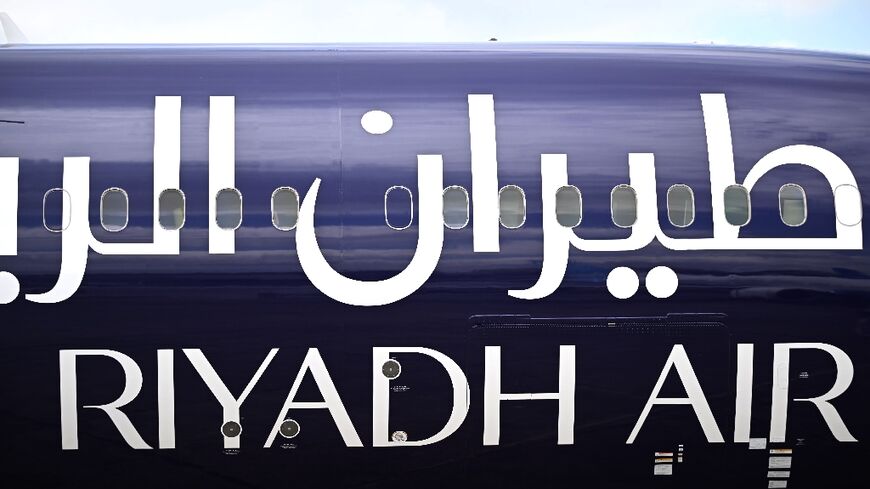As Boeing struggles, Airbus inks 4-aircraft deal with Saudi Arabia
The kingdom ordered four more of Airbus’ A330 Multi Role Tanker Transport aircraft for the Royal Saudi Air Force as Boeing's challenges mount in Gulf over safety issues.

Saudi Arabia signed a deal with Airbus for an additional four of its A330 Multi Role Tanker Transport (MRTT) on Wednesday in a sign that the French aerospace giant is gaining ground in the Gulf as its US rival, Boeing, struggles.
The kingdom ordered four more of Airbus’ A330 Multi Role Tanker Transport aircraft for the Royal Saudi Air Force. The aircraft is used for air-to-air refueling, as well as transport purposes. The aircraft will enter into service in 2027, Airbus said in a statement.
The official Saudi Press Agency reported that the order constitutes the kingdom’s third contract for the A330, but did not specify how many of the aircraft are currently in use in the country.
Airbus and Saudi Arabia did not specify the total sum for the deal. The agreement includes logistics support, including spare parts, training services and service support for the aircraft, according to Airbus.
Gaining momentum
The order builds on Airbus’ recent deals with Saudi Arabia. The following are some recent agreements between the two:
- The Saudia Group ordered 105 aircraft from Airbus’ A320neo family of planes for Saudia airlines and the budget carrier flyadeal in May.
- Airbus signed a deal with the Saudi Public Investment Fund’s The Helicopter Company in March. Per the agreement, Airbus will deliver 120 helicopters to the firm over the next five to seven years.
- Airbus and Saudi Arabia’s General Authority for Military Industries signed an industrial participation agreement in January, under which the company will help develop Saudi industry per the Vision 2030 economic diversification initiative.
Airbus was among the exhibitors at the World Defense Show in Riyadh in February.
Boeing’s struggles
Airbus’ rival Boeing is facing difficulties worldwide due to multiple safety issues in recent years. In January, the door plug of a Boeing 737 Max 9 blew off mid-flight. The incident on the Alaskan Airlines flight was caught on video and widely shared, leading to significant bad publicity for the company.
Two Boeing 737 Max planes crashed in 2018 and 2019, respectively, killing all 346 people aboard the two flights. On Monday, Boeing agreed to plead guilty to criminal fraud in relation to the two crashes.
Emirates President Tim Clark was among those who criticized Boeing in the aftermath of the Alaskan Airlines incident, telling Bloomberg in January that Boeing has “had quality-control problems for a long time now.”
In a memo for Al-Monitor PRO that month, Samuel Wendel wrote that Airbus could capitalize in the Middle East on Boeing’s safety issues, noting that a reported deal between Riyadh Air for as many as 100 Boeing 737 Max narrow-body planes has yet to materialize.
The deal, which Bloomberg reported was close to being done in November, has not been completed to date. Riyadh Air’s chief commercial officer, Vincent Coste, told Reuters in May that discussions for a narrow-body order are underway, though he did not specify the maker.
Boeing is still doing business with the kingdom, despite its struggles. In March of last year, Riyadh Air announced an order of up to 72 Boeing 787-9 Dreamliner wide-body aircraft in a multibillion dollar deal.
In May, Riyadh Air CEO Tony Douglas told Reuters that the Saudi airline aims to “stay as split” between carriers as possible, indicating that both Airbus and Boeing could in line for future deals.
Aviation ambitions
Saudi Arabia is seeking to become a global aviation hub per their Vision 2030 initiative. The Public Investment Fund announced Riyadh Air in March of 2023. The airline plans to take to the skies in 2025 and compete with Gulf rivals Qatar Airways, Emirates and Etihad.
In 2022 the kingdom unveiled plans for a new airport in Riyadh known as King Salman International Airport. The airport aims to accommodate 120 million travelers by 2030.







